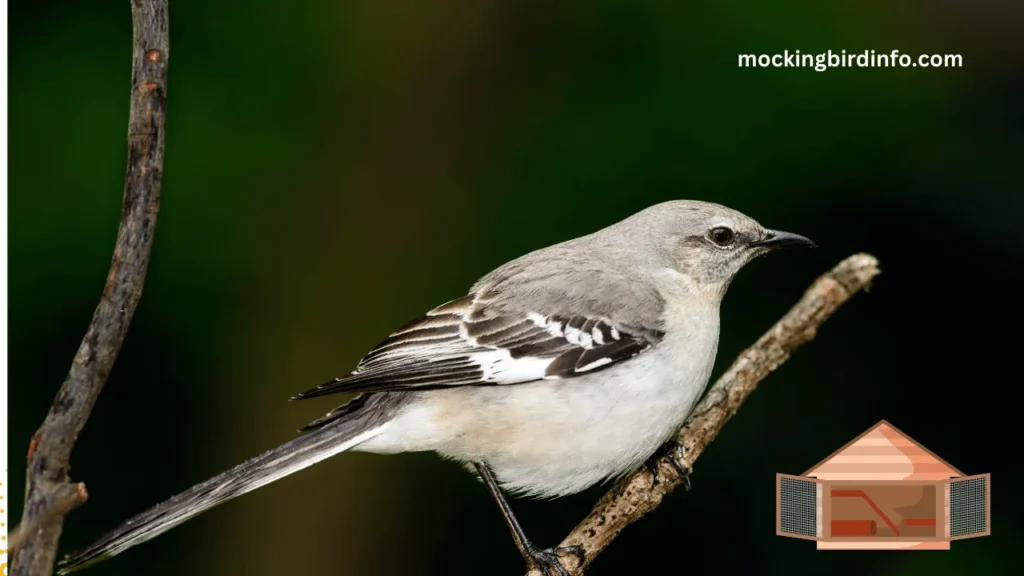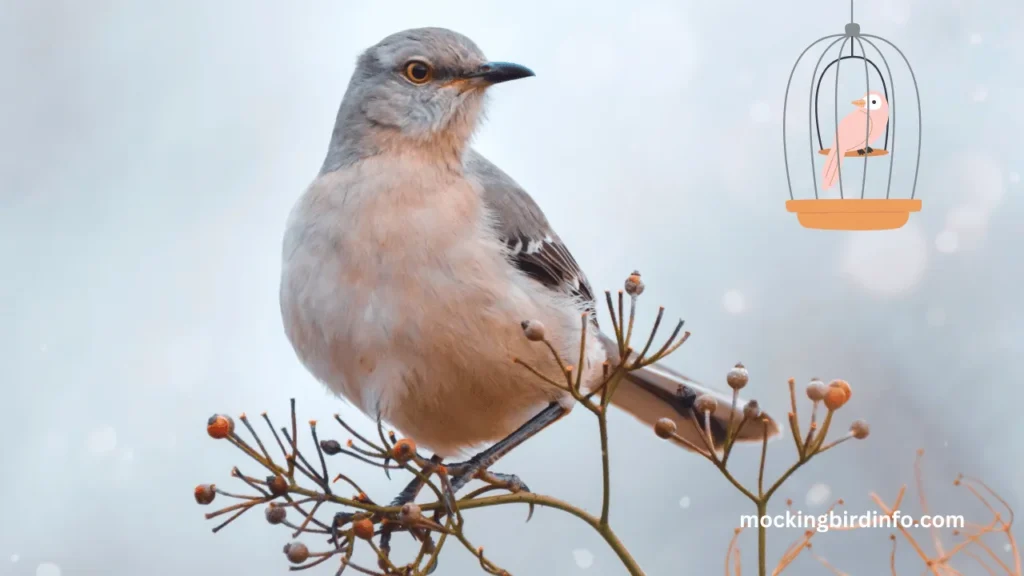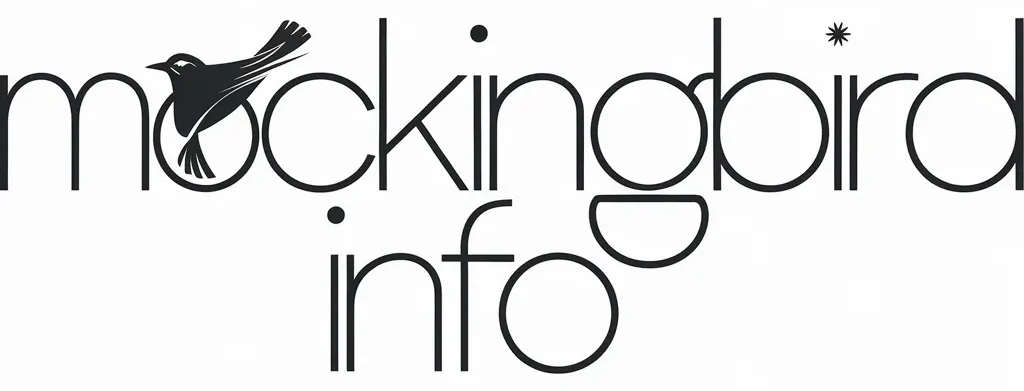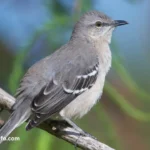Mockingbirds are known for their extraordinary ability to mimic a wide range of sounds, from the songs of other birds to mechanical noises like car alarms and sirens. This talent makes them one of the most fascinating and entertaining bird species to observe in nature.
However, as much as their intelligence and vocal prowess captivate us, many people wonder if these birds could make good pets. While it may be tempting to keep a mockingbird due to their charming behavior, the reality is that mockingbirds are not suited to life in captivity.
In fact, keeping one as a pet presents numerous challenges, legal issues, and ethical concerns. This article will delve into the reasons why mockingbirds are better appreciated in their natural habitats and explore alternative ways to enjoy them without causing harm.

Contents
1. Specialized Needs: Diet, Habitat, and Space
Mockingbirds are wild creatures with very specific needs that are difficult to replicate in a domestic setting. In their natural environment, mockingbirds eat a diverse diet consisting of insects, fruits, berries, seeds, and even small reptiles.
This varied diet is essential for their health, but providing all these nutrients consistently can be a logistical challenge for pet owners. Many commercial bird foods are not suitable for mockingbirds, and trying to mimic their wild diet may be time-consuming and costly.
In terms of space and environment, mockingbirds are active and need plenty of room to fly and explore. Unlike smaller pet birds that can be kept in small cages, mockingbirds require larger, open spaces to thrive.
Ideally, they need an outdoor aviary or enclosure that allows them to fly freely, stretch their wings, and engage in natural behaviors. This can be difficult to manage in a home, where space is limited. Without sufficient space, mockingbirds can experience physical and emotional stress, which could lead to health problems or even early death.
2. Territorial Behavior and Aggression
Mockingbirds are famously territorial, especially during the breeding season. This territoriality is a natural instinct that helps protect their nesting sites and ensures they have enough resources to raise their young.
In the wild, mockingbirds will fiercely defend their territory from other birds, animals, and even humans. This behavior can extend to captivity, where mockingbirds may display aggression toward their owners or other pets.
A mockingbird may become aggressive in confined spaces, attacking other birds or pets in the home, or even swooping at humans. This aggressive behavior can make it difficult to coexist with a mockingbird as a pet.
Furthermore, their territorial calls, which are often loud and persistent, can be unsettling or annoying, especially during the breeding season when they vocalize frequently to assert their dominance. For those looking for a peaceful pet, a mockingbird’s behavior can become a significant challenge.
3. Noise Levels and Vocalizations
One of the most charming traits of mockingbirds is their vocal abilities. They are capable of mimicking a variety of sounds, from the songs of other birds to mechanical noises like car alarms, chainsaws, and even doorbells.
While this mimicry is entertaining in the wild, it can become a major disturbance in a domestic setting. Mockingbirds are most vocal during the breeding season, and their vocalizations can be extremely loud and persistent, sometimes throughout the day and night.
For pet owners, this constant noise can be overwhelming, especially if the bird is housed in a small apartment or shared living space. Mockingbirds may mimic sounds that are not only annoying to their human owners but also disturbing to neighbors.
Additionally, the sheer volume and frequency of their calls can create a stressful environment for both the bird and the people around them. While some people may find this noise endearing, it can become a major issue for those seeking a quieter household.

4. Legal and Conservation Concerns
In many regions, mockingbirds are protected by law due to their status as native wildlife. For example, in the United States, mockingbirds are protected under the Migratory Bird Treaty Act, which makes it illegal to capture, keep, or harm these birds without a proper permit.
This legal protection is in place to preserve wild bird populations and prevent the illegal trafficking of birds. As such, attempting to keep a mockingbird as a pet may violate local, state, or federal laws, resulting in legal penalties or fines.
Beyond the legal issues, there are significant conservation concerns regarding the capture of wild mockingbirds. Removing them from their natural habitats can disrupt local ecosystems and harm wild populations.
Mockingbirds play an important role in controlling insect populations and promoting plant pollination. By removing them from the wild, you are not only affecting the individual bird but also the delicate balance of the local ecosystem. It is essential to consider the broader environmental impact of keeping a mockingbird as a pet.
5. Ethical Implications of Keeping a Mockingbird as a Pet
From an ethical standpoint, keeping a wild bird as a pet raises serious questions about the welfare of the animal. Mockingbirds are adapted to life in the wild, where they can forage for food, build nests, and interact with other birds.
In captivity, they are often confined to small spaces where they cannot engage in these natural behaviors. This confinement can lead to stress, anxiety, and depression in the bird, which in turn can negatively affect its health and longevity.
In addition, mockingbirds have complex social and psychological needs. In the wild, they interact with a wide range of species, establishing and defending territories. Keeping them isolated from other birds can cause loneliness and distress, which may manifest as destructive behavior or a decline in health.
Ethically, it is important to consider whether the bird’s quality of life is truly being met in captivity, or whether it is being deprived of its natural instincts and freedom.
Alternative Ways to Enjoy Mockingbirds
Instead of keeping a mockingbird as a pet, there are many alternative ways to enjoy these incredible birds while respecting their natural behavior and habitats. One of the most rewarding activities is birdwatching.
Observing mockingbirds in their natural environment allows you to appreciate their songs, flight patterns, and social interactions without causing harm. Birdwatching can be done in local parks, nature reserves, or even in your own backyard, where you can attract mockingbirds by providing bird feeders, water sources, and native plants.
Additionally, you can create a bird-friendly environment in your yard by planting trees, shrubs, and flowers that provide food and shelter for mockingbirds. Adding birdhouses, birdbaths, and feeders stocked with seeds and fruit can attract these birds to your space and provide them with the resources they need to thrive.
This allows you to observe and enjoy mockingbirds up close without compromising their well-being.
Finally, supporting wildlife conservation organizations that focus on protecting bird habitats and preserving the natural environment is another meaningful way to contribute to the welfare of mockingbirds.
Many organizations work tirelessly to protect birds and their ecosystems, and getting involved can help ensure that mockingbirds continue to thrive in the wild for generations to come.
Conclusion
While mockingbirds are fascinating creatures with remarkable intelligence and vocal talents, they are not suited for life as pets. Their specialized needs, territorial behavior, and potential for noise disturbances make them difficult to care for in a domestic setting.
Moreover, there are significant legal and ethical concerns surrounding the capture and keeping of wild birds. Instead of attempting to keep a mockingbird as a pet, we can appreciate these remarkable creatures by engaging in birdwatching, creating bird-friendly environments, and supporting conservation efforts.
By respecting their natural habitats and wild nature, we can ensure that mockingbirds continue to inspire wonder and admiration for years to come.
FAQs
1. Can mockingbirds be tamed?
Mockingbirds are wild animals and cannot be fully tamed. While they can become accustomed to human presence, their instinctual behaviors remain strong, making them unsuitable for domestication.
2. Are mockingbirds protected by law?
Yes, mockingbirds are protected under the Migratory Bird Treaty Act in the United States, which prohibits capturing or harming them without a proper permit.
3. How long do mockingbirds live in the wild?
Mockingbirds can live up to 8 years in the wild, though many live shorter lives due to predation and environmental factors.
4. What do mockingbirds eat in the wild?
Mockingbirds eat a varied diet that includes insects, berries, fruits, seeds, and small reptiles.
5. Can mockingbirds be kept in an aviary?
While aviaries can provide more space, mockingbirds still have complex needs that are difficult to fully meet in captivity.
6. Why do mockingbirds mimic other animals?
Mockingbirds mimic other species to defend their territory and establish dominance over their environment.








